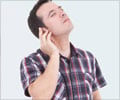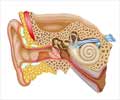Q: Which doctor should I consult for an airplane ear?
A: An ENT specialist should be consulted for an airplane ear.
Q: How does airplane crew manage an airplane ear?
A: Most aircrew learn to deal with the situation more comfortably than passengers as they have traveled extensively and carrying out simple tasks like yawning, swallowing or performing the Valsalva maneuver is second nature for them. In the event of a more serious condition, they would have to consult a doctor for care.
Q: How can children be protected from an airplane ear?
A: Airplane ear is caused to a large extent due to improper pressure conduction by the Eustachian tubes. Since it is not possible to teach infants and young children to yawn or to perform the Valsalva maneuver, it is ideal to provide them with a drink that encourages them to swallow. Alternatively, their ears may be plugged with sanitized ear plugs or cotton plugs.
Q: Can I travel after a cochlear implant?
A: Patients are allowed to travel a week or two after surgery. However, patients need to check with their surgeon before they do.
Q: When should nasal decongestants be used to avoid an airplane ear?
A: Nasal decongestants should be taken 45 minutes to one hour before the start of the flight for them to be effective. They should be taken again 45 minutes to one hour before landing. Nasal decongestants are not recommended for children.
Q: How does airplane ear affect hearing?
A: When the eardrum is stretched due to the pressure build up, it is unable to vibrate naturally as a response to sound. This blurs the sounds and leads to partial temporary loss of hearing. However, in severe cases, when there is extensive damage, it could lead to loss of hearing.









